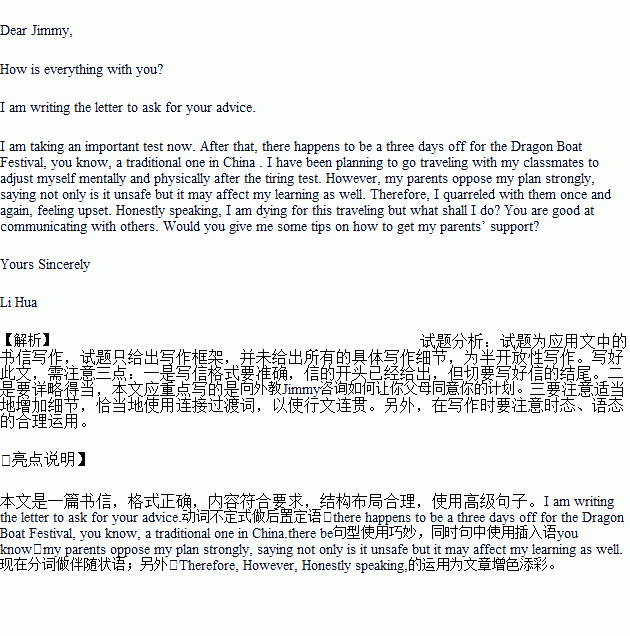题目内容
假如你是高二学生李华,这次考试后,学校放假三天,你打算和同学出去旅游以调节身心,可是父母亲不同意,担心你的安全及学习。为此你与父母吵架,心情不好,不知如何说服父母。请用英语给你的外教Jimmy写信,向他咨询如何让你父母同意你的计划。
注意:
1. 可以适当增添细节,以使行文连贯。
2.词数100左右。 开头与结尾已给出,不计入总字数。
参考词汇:the Dragon Boat Festival 端午节
Dear Jimmy,
How is everything with you?
——————————————————————————————————————————————————————————————————————————————————————————————————————————————————————————————————————————————————————————————————————————————————————————————————————————————————————————————————————————————————————————————————————————————————————————————————————
Yours Sincerely,
Li Hua
练习册系列答案
相关题目

